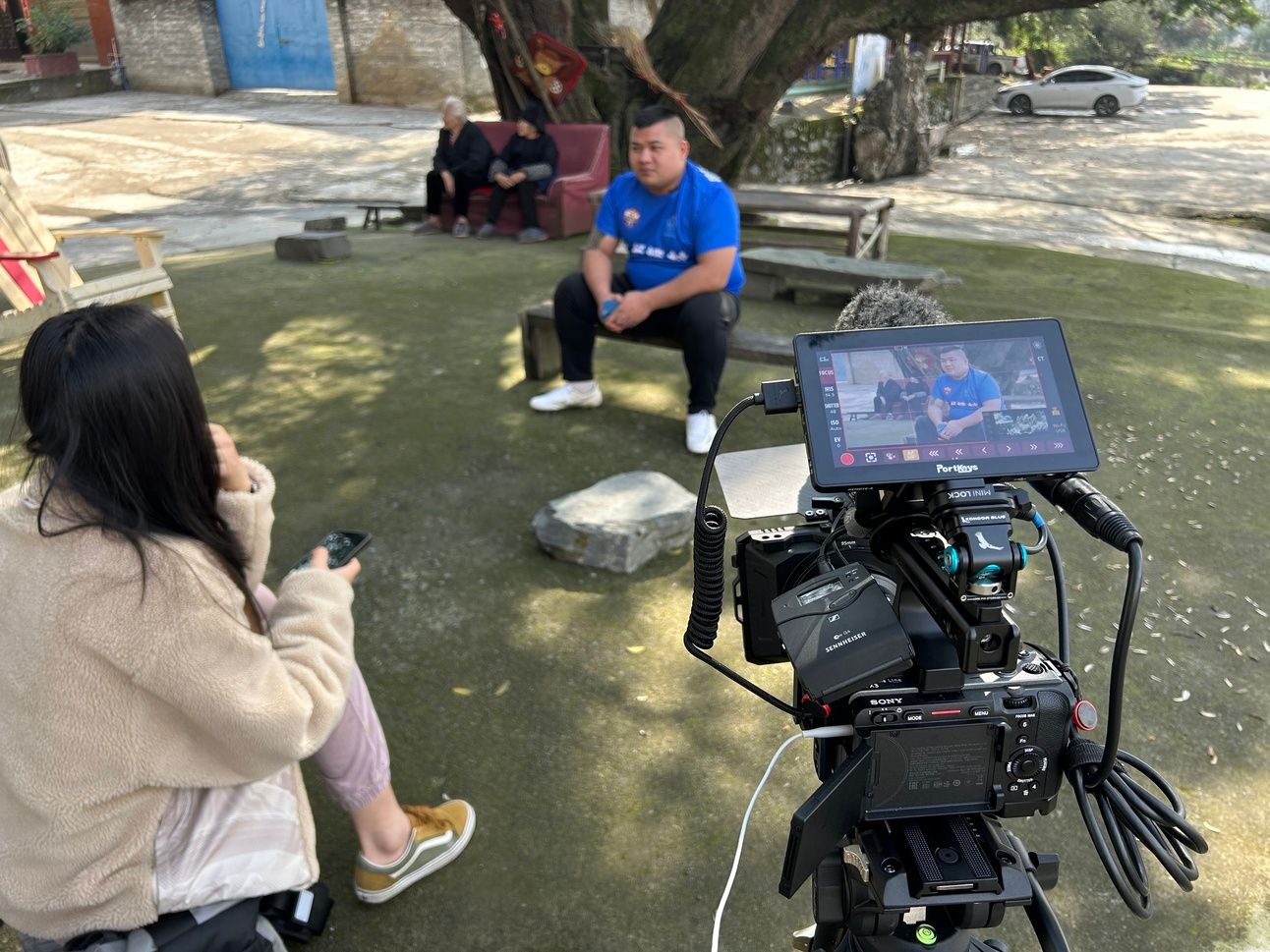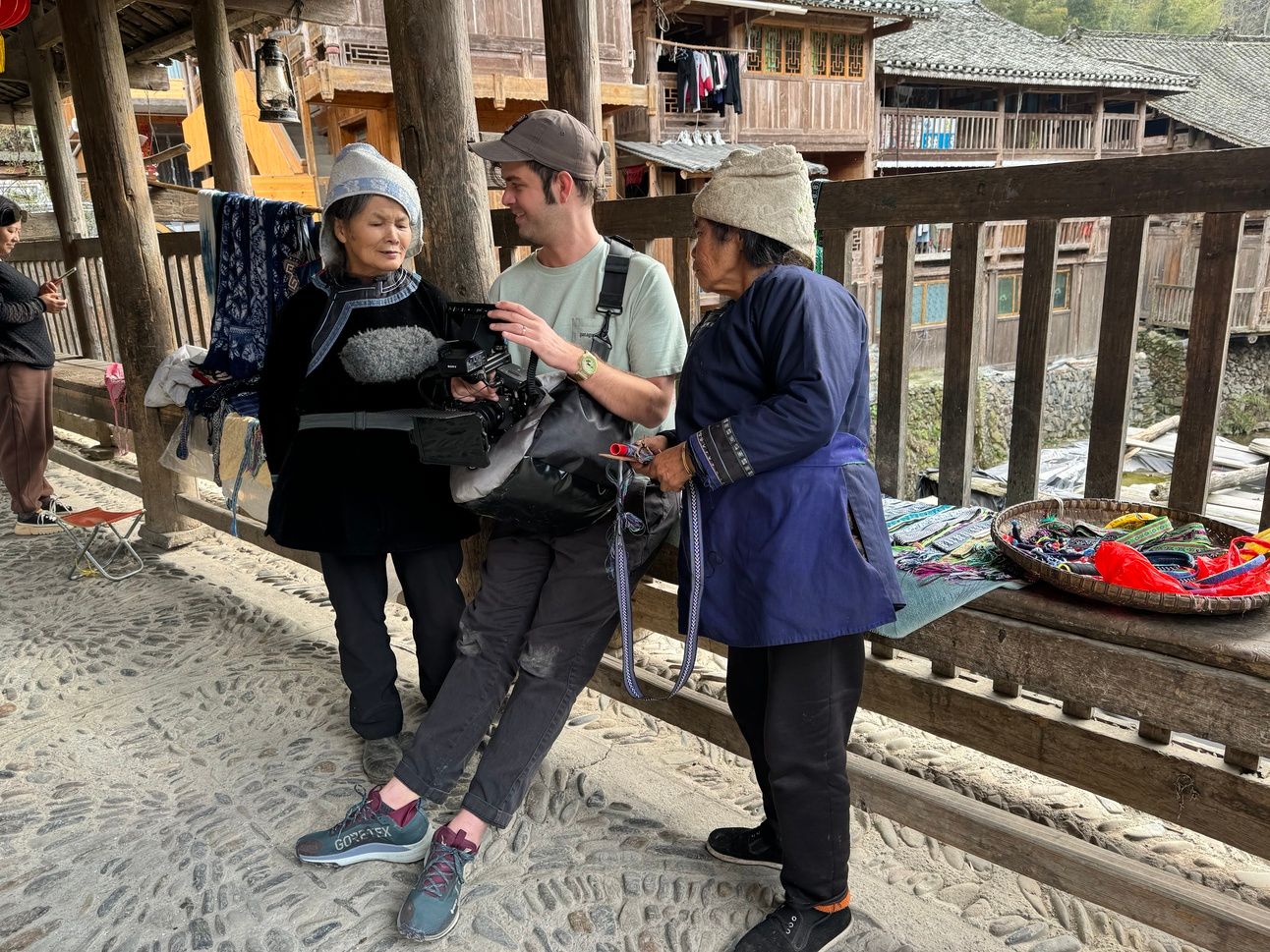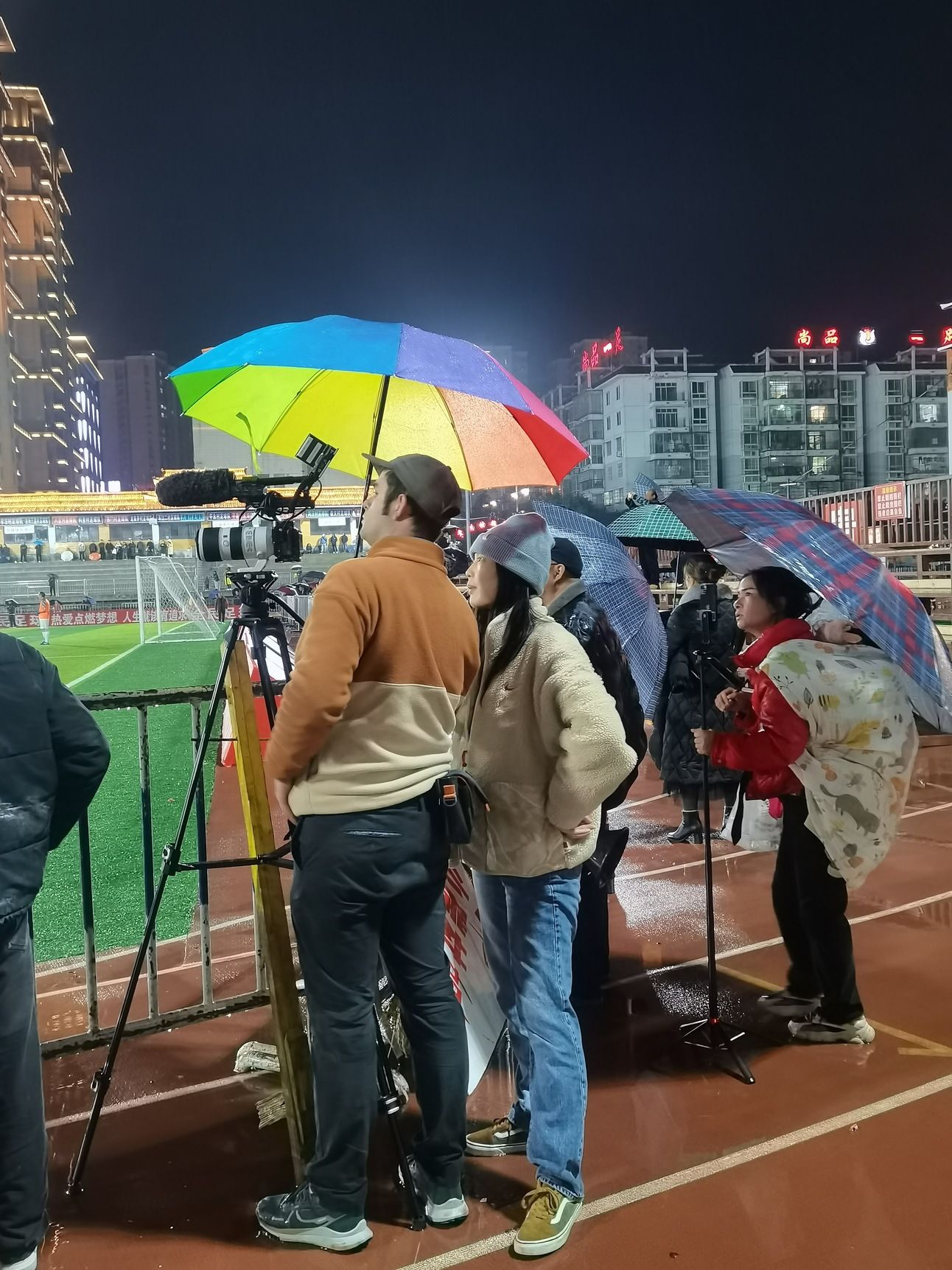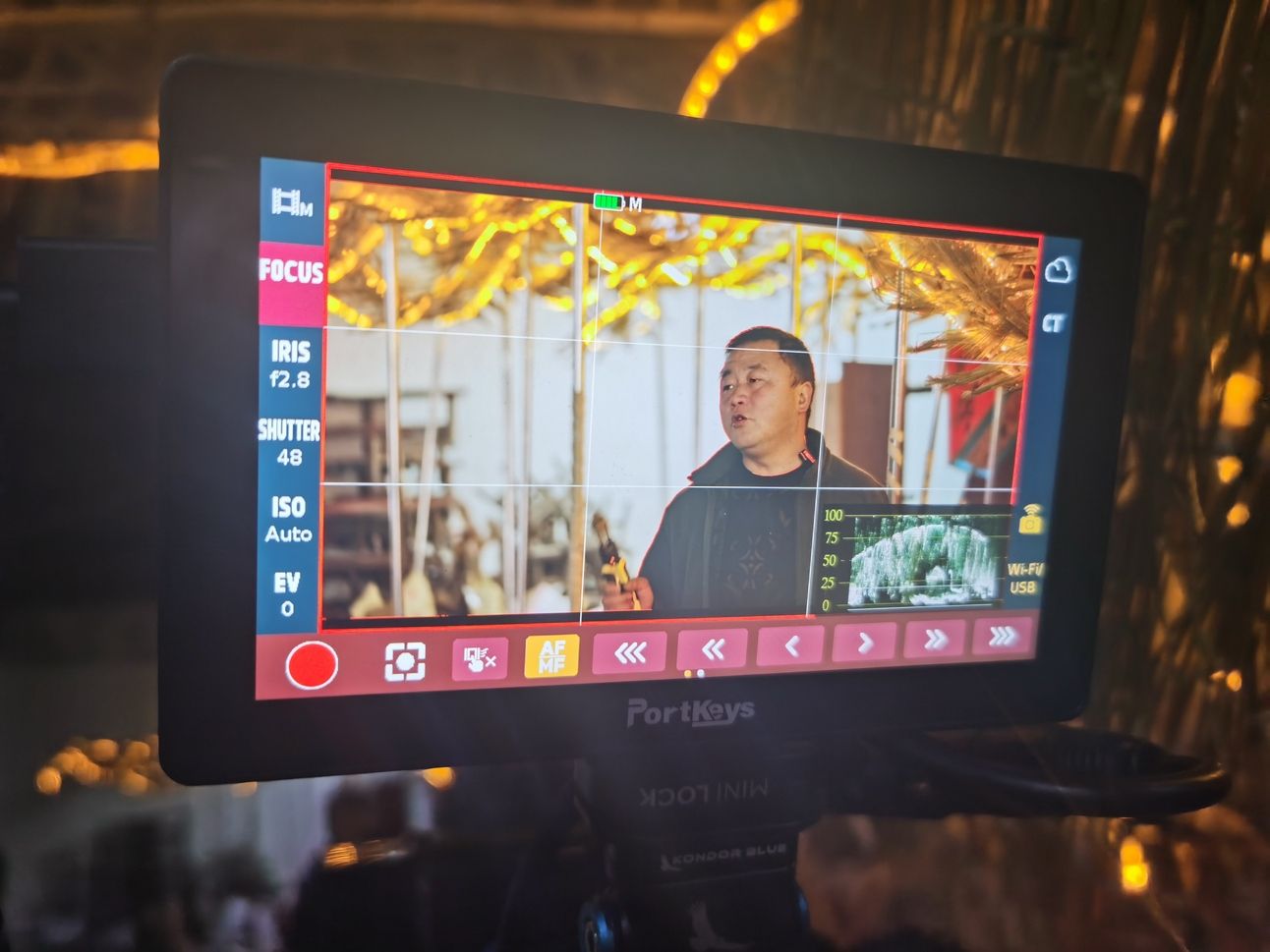- Documentary Values
- Posts
- Production
Production
Doing the damn thing
Shooting this film was hard and frustrating. It was other things as well, but mostly hard and frustrating. I didn’t expect it to be easy by any means but I was not ready for the slow start to shooting. Out of 21 shoot days I doubt much from the first week will make it into the final cut.

Our first interview of the film
I get a pit in my stomach when a shoot isn’t going great, this fear starts as a whisper and slowly gets louder “Why didn’t you research more? You know you need more footage, Why didn’t you….” on and on. It gets loud, annoying and hard to ignore. This was especially hard for me to ignore during parts of this project because this was the first film I had shot in probably two years. I let my break in shooting get into my head and then (in the beginning) I tried taking a rigid, systematic approach to reviewing my footage. I wanted temporal, poetic verite footage of the Chinese countryside but was taking a borderline scientific approach to reviewing the footage. At the height of my frustration I posted on reddit asking how others review their verite footage, the answers I got was unbelievably helpful, two in particular stood out. The unintentionally helpful one went like this “I don’t really need to review because I”m staring at my monitor in another room while my cam op does their thing and my focus puller does their thing”. What made this unintentionally helpful for me was that up until this point I genuinely felt like I was doing something wrong, I can’t tell you why I ended up there other than self-doubt but that’s where I was. What this answer reminded me of was that there is no wrong way to documentary. Something is a documentary because the creator calls it one, in many ways I think documentary is closer to poetry than to journalism, but that’s another post for another time. This answer was a great reminder that there isn’t a right or wrong way. Even if I had the money I could never imagine sitting and staring at a monitor as the DP on an observational shoot. This ultimately was freeing for me mentally, and that’s why it was helpful. The second answer was also freeing but in a different way, “You don’t know how you’ll use observational footage so don’t overthink reviewing footage other than to make sure you got specific things”. Boom, so simple and clear. If you can allow this to be freeing in your approach to shooting rather than paralyzing it can change the game. Don’t worry about how a clip will be used in a process you (the DP) probably won’t be involved in. These two answers helped my approach a lot and were great reminders. I don’t want to ignore that shooting observational footage where they are speaking a language you don’t understand is a choice. Now, it wasn’t just me, my wife who is not only Chinese but from Guizhou, the province we were shooting in was there. We developed a simple system that ended up being huge. If there was a conversation related moment we needed she would double tap my shoulder, this told me to hold. No words, no distracting motions for the participants. This removed pressure from me, I didn’t have to wait for breaks in talking if my shoulder hadn’t been tapped.

Getting some pointers on my composition
One thing that is a part of my process is making sure the participants of my film know me as a human, they meet me first without a camera and hopefully even hang out with out the camera. As odd as it sounds I don’t want their first image of me in their head to be me with the camera. This approach helped a lot in Guizhou, Chinese culture is very family and community focused. Whenever we are out for dinner and I wanted a beer, whoever we were with would get one as well; “You can’t drink alone”. It’s simple, but the commitment is real. We had a meal with every single participant before shooting with them. The meal of choice was always hotpot, you’ll see in the film how often the team meets over food and specifically hotpot. Doing this was the single most important thing I, the white American did for getting the trust of the films participants. My willingness to try and do things created an authentic relationship between us. Once I pushed back the self doubt and trusted myself the footage did get better, key word being better. There are some good scenes, some great shots and a lot of passable footage that with good editing will be a fun watch.
Sometimes you really just have to do the damn thing. There is a long list of things we would change in this film and viewers I’m sure will have all kinds of ideas on what we could have done differently. Most of them will probably great ideas too. But without doing it you can’t get to this review stage. It’s tough re-watching footage when all you see is misses, mess ups and naivety. But even with the break between shooting films I can tell you right now this film is better shot than my last. There’s less interviews and the observational footage is better. In a weird way I enjoy watching back this footage and thinking of everything I could have done differently. This is probably the first time I can say that. Part of me wishes we were doing re shoots, there is so much I want to do differently but also get for the first time. We still “could” do them but it would require some finances that we don’t have at the moment. The most important thing is finishing the project.

My better half helping me on a rainy night in Rongjiang
Production is a monster; you can throw all the spreadsheets, workflows and systems you want at it but it is going to force you to adjust in the moment. We researched, prepped, interviewed and it still wasn’t enough, but that’s the beauty of it. That curiosity that led us to make this film is the same curiosity that will make future viewers sit in the theater or click on the thumbnail. You can’t loose that, it’s your north star. We’ve been able keep our eyes on it, night after night, weekend after weekend; and a year and a half in and we are still going strong. Production was hard and frustrating… but so much fun, invigorating and ultimately why I do it. The pit in my stomach doesn’t ever completely leave and that keeps me going. Everyday is different, every shoot starts with a fresh slate.
Another thing we’ve started is social media accounts for our film. It’s slow gong right now but the goal is to have a full, information rich profile by the time we’re applying to festivals. PLEASE give them a follow! @supervillagedoc on instagram and bluesky. We’ll be posting screen shots, updates and general information about the film, area and people of Rongjiang! Hope to see you on the interwebs and until next time, keep watching!

My view during production
Reply